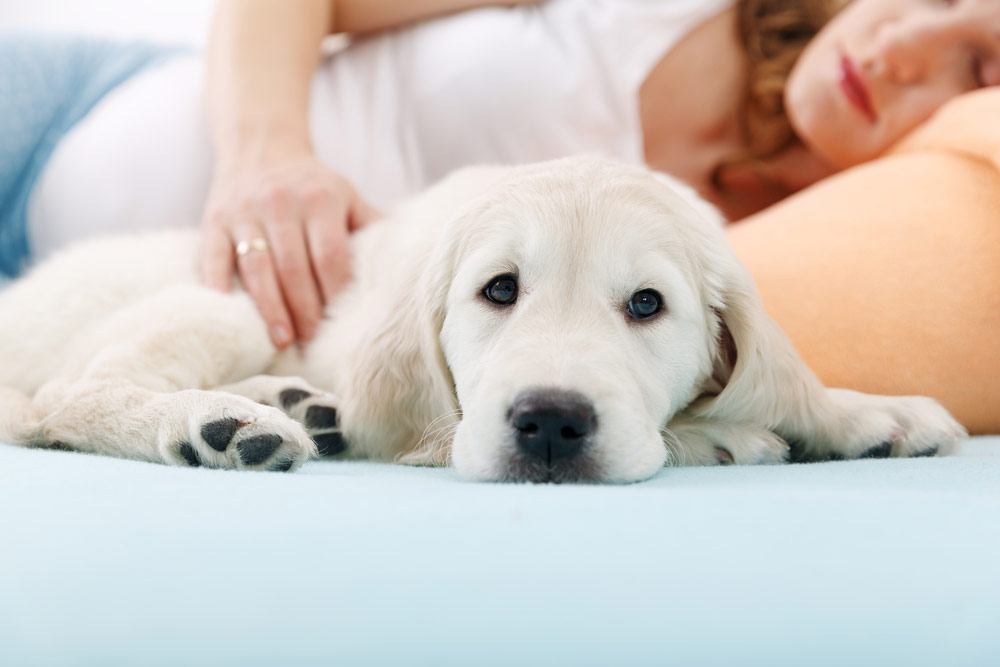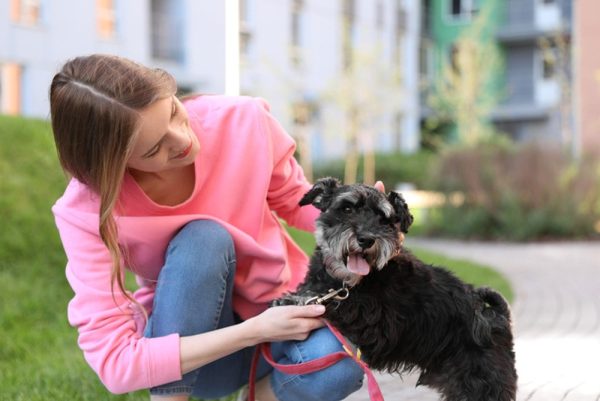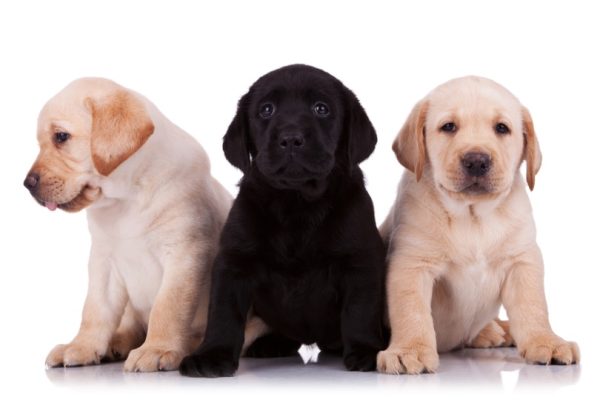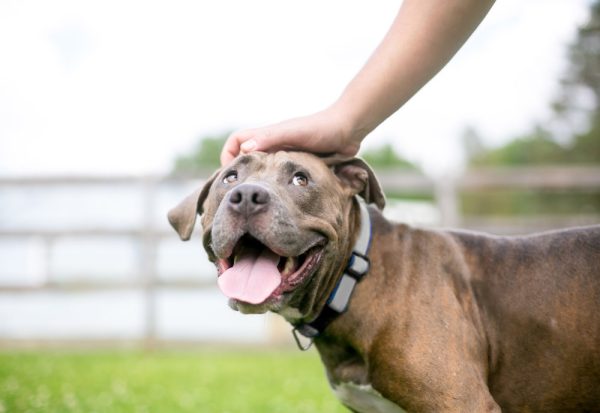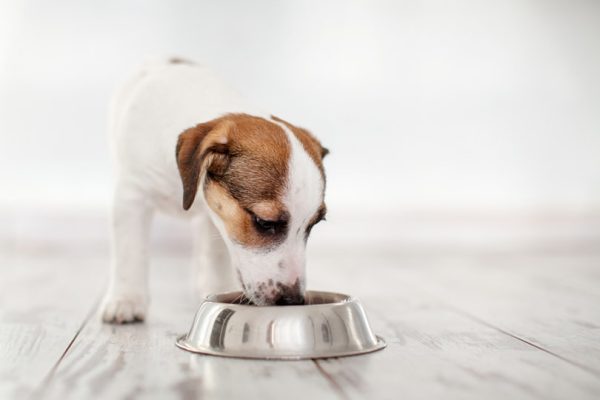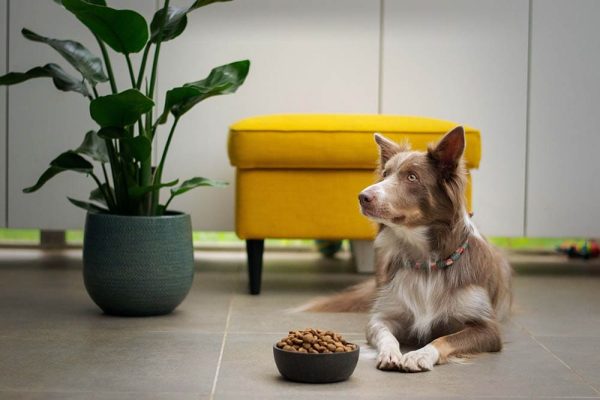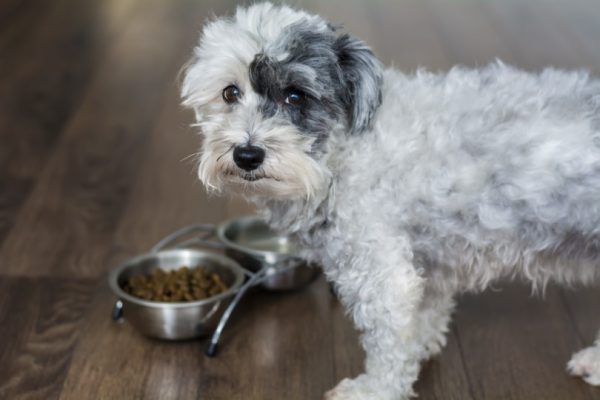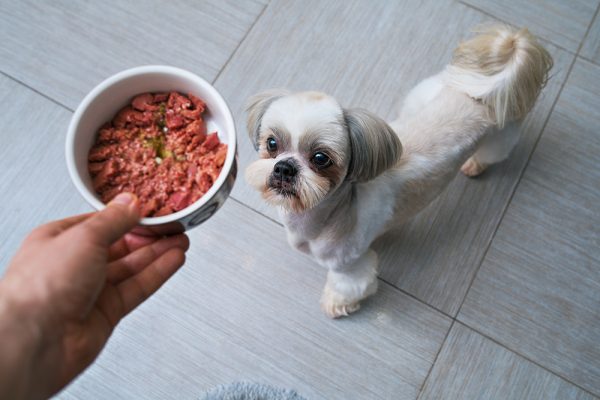Congratulations on your new addition! We’re sure you and your household are excited about the baby. A little one brings so many changes in a family’s life—some anticipated and others not so much. You may not realize it, but the event is also life-changing for your pup. Undoubtedly, your dog gets a lot of attention, especially if you don’t have any kids, and lots of things will change for your pup when the new baby comes home.
Canines are capable of many emotions, such as distress, fear, and anger. A change in the household routine could trigger some of these feelings in your pet. Preparing them as you prepare for the new baby makes sense, as you don’t want this to be a highly stressful situation if you can help it.

Before You Begin
Dogs are much more aware of your home’s goings-on than you may realize. It doesn’t take long for pets to learn the household routine. They also know when things change, no matter how subtle. Your goal is to introduce your dog to the new things and noises that your new addition will bring. Doing these tasks without the baby means you can give all your attention to your dog while they navigate the new things and smells. By doing this slowly throughout your pregnancy, your dog will be prepared for their new human sibling by the time they arrive.
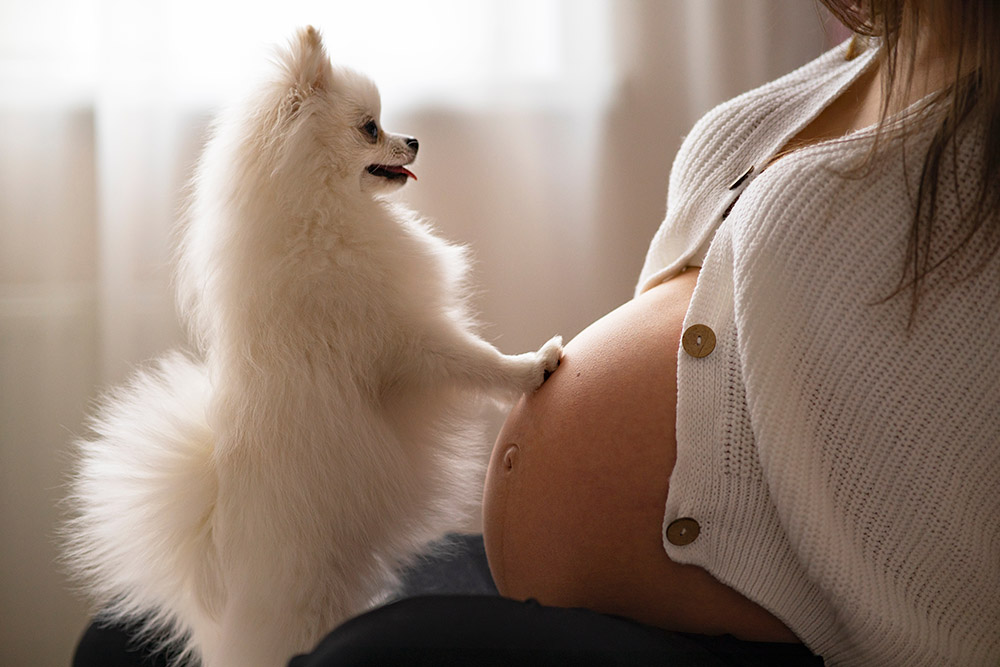

The 10 Tips for Preparing Your Dog for a Baby
1. Introduce Your Pup to the New Room and Baby Stuff
You’ll probably buy new things for your baby, and all that stuff will have different smells outside of your pup’s norm. Letting your dog sniff them will help them get used to these new scents. The last thing you want to do is bombard your pet with a lot of new things at once. You want to introduce new things slowly and allow your pup’s natural curiosity to encourage them to investigate.
2. Get Your Dog Accustomed to the New Smells
You’ll undoubtedly use new skin care products on your baby. The smells are probably different from the products you use on yourself. So, we suggest getting your pet used to the new scents they’ll likely encounter. Think of items like baby oil, shampoo, and diaper rash ointment. Again, the idea is to avoid overwhelming your dog with too many new things at once.
3. Set Boundaries for Off-Limits Areas Early
You probably won’t want your dog in some areas after you bring the baby home. Perhaps you’ll want to keep your pup away from the baby’s bedroom or even the whole upstairs. It’s best to set the ground rules early before the baby arrives. Set up baby gates where you think you’ll need them so that your dog learns the new setup and doesn’t associate it with the new baby.
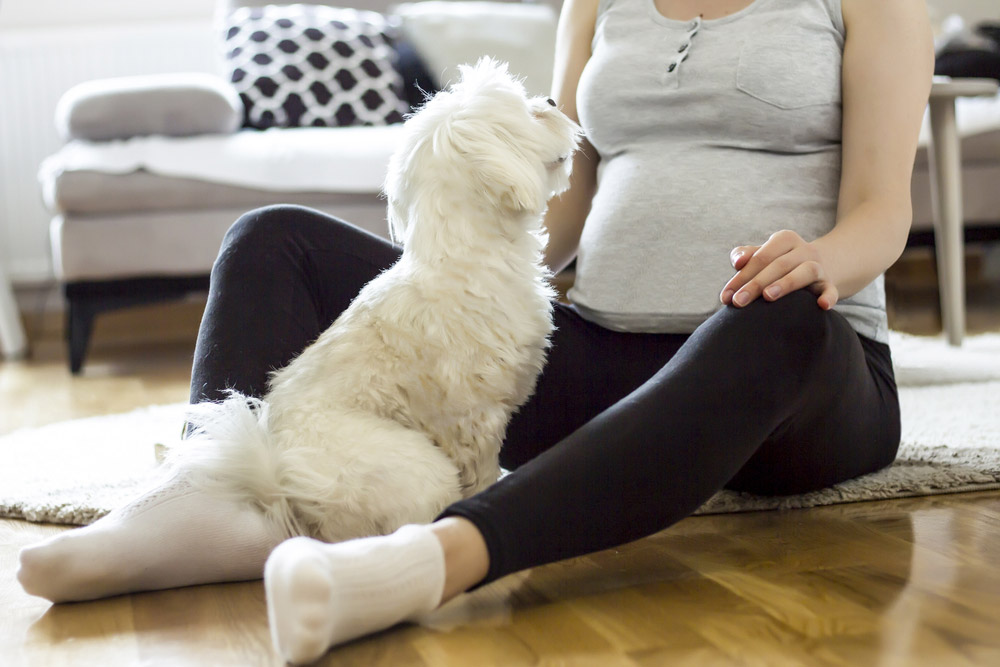
4. Get Your Dog Used to the New Sounds They’ll Hear
A baby will bring many different sounds to your home. They are sometimes loud and often occur suddenly. You can find many videos on YouTube to familiarize your pup with these noises. Crying is probably one of the most jarring if your dog hasn’t heard it before. Listening to these sounds when everything else is status quo can prevent your pet from being startled by them.
5. Sharpen Your Dog’s Canine Manners
The time before the baby arrives is an excellent time to hone your dog’s canine manners. Reinforce lessons for commands like “Leave!” and “Stay!” They should be automatic for your pet, and you can’t risk your pup disobeying.
6. Stick to Your Pet’s Routine as Much as Possible but Change what You Need to
One of the most disruptive things from a canine perspective is a change to the routine, and it can spur negative emotions in your pet. If you have a regular time for walks or lessons but you think these will have to change once the baby arrives, start altering the routine before the baby is born. Try to stick to elements of the dog’s routine that will be unchanged, such as the last garden break before bed, but change what you think you’ll need to. Dogs anticipate walks and feeding times, so you want to have your dog in its new routine by the time your baby comes home.
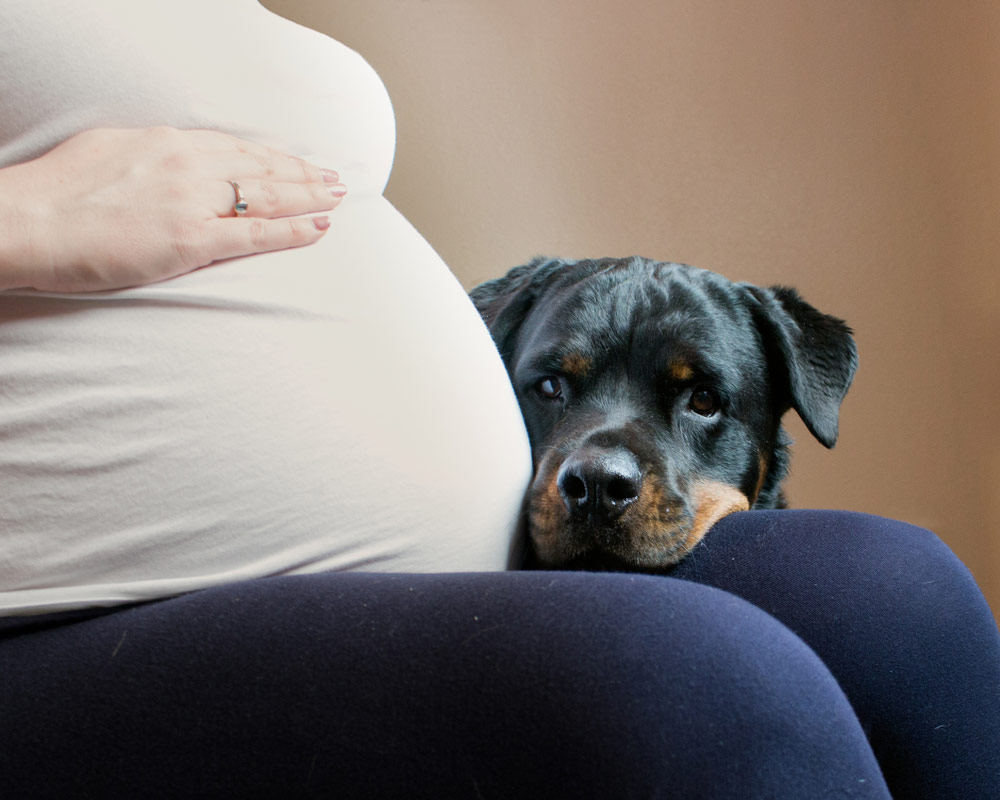
7. Practice Walking With a Stroller
If you take your dog on daily walks, getting your pet accustomed to going on them with a stroller is essential. The new sounds and the different way your pup will walk alongside you might take some practice for you and your pooch. It’s also an excellent way to stick to your dog’s routine despite the change in your household.
8. Delegate Care Duties
If you’re going to be the baby’s primary caregiver, it’s essential to ensure your pet isn’t neglected because of your change in duties. So, if you’re the one who usually takes care of your dog, it’s time to delegate that task to someone else. You can start the transition early to make the switch seamless. It can go a long way toward reducing the stress the upheaval may cause.
9. Less Attention from you or Attention at Different Times of Day
You shouldn’t change the way you interact with your pet after the baby arrives but you are very likely to have to reduce how much you interact with your dog, or the timings of giving attention. Research has shown that canines can experience jealousy, so in the months leading up to the birth of your baby, it is wise to show your dog high quality attention, but perhaps a little less of it or at different times of the day. By the time your newborn arrives, your dog will be used to his new affection routine, and not see it as an effect of the baby.

10. Supervision Is Key
Supervision will become part of your world once the baby comes home. There’s the issue of jealousy we discussed. However, it does not end when your child starts walking and talking. Research has revealed that children under 6 have a limited ability to read canine body language, and that can lead to risky situations if your little one gets in your dog’s space. So, start practicing supervision from day one!

Final Thoughts
A new baby is always a well-anticipated but stressful event for everyone in the household. Life changes seemingly overnight. Understanding the situation from your pup’s perspective is imperative. Your dog will likely feel apprehensive due to all the changes. Your goal is to ease into the transition in your home, introducing your pet to the new routines and objects early to make the journey smoother for everyone.
Featured Image Credit By: NotarYES, Shutterstock
